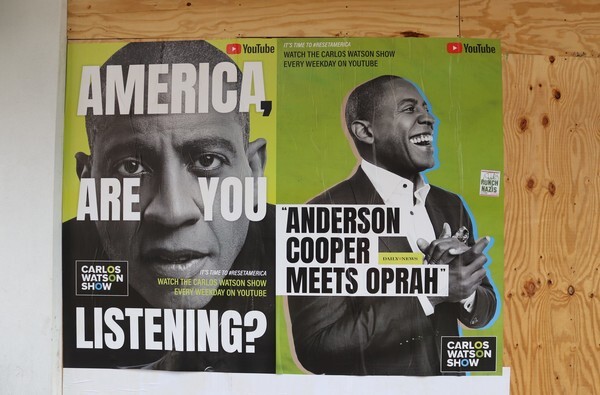
(Elvert Barnes/Flickr)
You know, it’s strange. The tale of Ozy, already one of the weirdest in recent media history, is so nuanced and strange that, despite writing a take on the topic just two days ago, I feel compelled to write about it again. Indulge me.
First off: I’d like to be clear—the journalists screwed over in this situation, by this company, deserve all of the support and respect that we can offer. None of us expected to be reading a story like this, and as an industry, journalism should be supporting them. It is not their fault that their executives deceived them—they were not in charge of the numbers or the money.
But having thought about it a bit, I think the problem with the outlet is that it seems to have been designed as a vehicle for Carlos Watson to appear on television and score broadcast deals, but along the way, it sort of became something reminiscent of a scam.
https://twitter.com/krystalball/status/1442657691738857472
There isn’t necessarily anything wrong with something existing as a vehicle for a traditional broadcast journalist to continue to serve his audience online. Larry King spent the last decade of his life supporting a somewhat similar model in the form of Ora TV, which turned out to be a really great interview format for him in the end, even if King (and his backer, Mexican billionaire Carlos Slim) never got the traffic or prestige of a much larger outlet, though unlike Ozy, King seemed to have earned his YouTube success legitimately. (Ora had other shows, most notably the now-quite-popular conservative talk show The Rubin Report, but King was clearly at the center.)
And certainly other former CNN anchors, like Soledad O’Brien, have found success with independent production companies.
But there appears to have been a clear fake-it-till-you-make-it strategy happening with Ozy, which maybe made sense when it was brand new and had something to prove, but clearly went on way too long and turned into something closer to a grift.
Just speculating here, but Watson didn’t have the profile of either O’Brien or King, and therefore needed the lift of something else—a millennial-targeted news outlet being that “something else.”

(Umberto/Unsplash)
The problem is, what drives people to read content online is not what convinces people to sign production deals with modestly famous former news anchors. Ozy appears to have created a media outlet without any market research to figure out if there was any “there” there, but accepted money from different venture capital firms and advertisers as if they did.
He needed to essentially create a news outlet without clickbait, and when you do that, the result is that nobody ever clicks. (Nothing against Corey Stoll, he was great in the first season of House of Cards, but ain’t nobody clicking this because there’s no sizzle.) And they had to account for that at some point—and when they did, it dipped into something approaching fraud.
(And the real downside of that is when you finally do have something that people might want to read, your reputation is shot and they simply don’t.)
If Watson and team had set their ambitions 20 percent lower, they wouldn’t have had to rely on fakery to inflate the audience. Watson could have just built a production company for himself … but venture capitalists likely aren’t supporting production companies. Hence the conundrum.
Watson in some ways represents the challenging next steps facing former broadcast journalists in the digital world. He could have perhaps done well for himself by starting a podcast or a YouTube channel, but he went all in on media empire-building. And now, it’s looking increasingly likely that Ozy will see an implosion off the face of the internet in a matter of weeks.
You don’t piss off venture capitalists and advertisers in one fell swoop and survive.
Time limit given ⏲: 30 minutes
Time left on clock ⏲: 1 minute, 29 seconds



